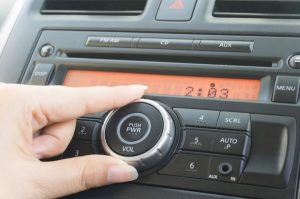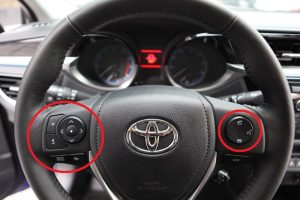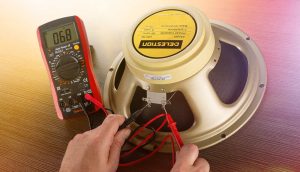Want great sound? It all starts with properly matching your speakers and amplifier. This guide walks you through everything you need to know about creating the perfect audio partnership for incredible sound quality.
Contents
- Understanding Speaker and Amplifier Compatibility
- The Key Specs You Need to Know
- The Matching Process: Step by Step
- Practical Examples of Good Matches
- Common Mistakes to Avoid
- Advanced Matching Concepts
- Digital vs. Analog: Special Considerations
- Practical Testing Tips
- Upgrading Path Recommendations
- Special Case: Tube Amplifiers
- Final Checklist for Perfect Matching
- Conclusion
Understanding Speaker and Amplifier Compatibility
Matching speakers with the right amplifier isn’t just about making sound—it’s about making amazing sound. When your speakers and amp work in harmony, you’ll hear music the way it was meant to be heard: clear, detailed, and powerful.
Let’s break down what you need to know to create that perfect audio pairing.
The Key Specs You Need to Know
Speaker Impedance (Ohms)
Speaker impedance represents the electrical resistance your speakers present to your amplifier. Think of it as the “load” your amp needs to drive.
Common speaker impedance ratings:
- 4 ohms (low impedance, harder for amps to drive)
- 6 ohms (middle ground)
- 8 ohms (higher impedance, easier for amps to drive)
Pro tip: Most home amplifiers work best with 6-8 ohm speakers. If you have 4-ohm speakers, make sure your amp specifically states it can handle this load.
Speaker Sensitivity (dB)
Sensitivity tells you how efficiently a speaker converts power into sound. It’s measured in decibels (dB) with a standard input.
- Lower sensitivity (85-87dB): Needs more power to get loud
- Medium sensitivity (88-91dB): Average efficiency
- High sensitivity (92dB+): Produces more volume with less power
A high-sensitivity speaker needs less amplifier power to reach the same volume as a low-sensitivity speaker. Just 3dB higher sensitivity means the speaker needs half the power to reach the same volume!
Amplifier Power Output (Watts)
Amplifier power is measured in watts per channel. This tells you how much power the amp can deliver to each speaker.
Power ratings come in different flavors:
- RMS/Continuous power: The power an amp can deliver continuously
- Peak power: Maximum short-burst power (less important for matching)
Focus on RMS power for accurate matching. Peak power ratings often exaggerate an amp’s real capabilities.
Speaker Power Handling (Watts)
This spec tells you how much power your speakers can safely handle. Look for:
- Minimum recommended power
- Maximum power handling
Staying within this range helps prevent damage and ensures good sound quality.
The Matching Process: Step by Step
Step 1: Check Speaker Impedance
First, make sure your amp can handle your speakers’ impedance. Most amplifiers specify compatible impedance ranges (like “4-16 ohms”).
Warning: Running an amp with speakers that have too low impedance can overheat and damage the amp. If your speakers are 4 ohms, double-check that your amp specifically states it can handle 4-ohm loads.
Step 2: Match Power Ratings
The ideal amplifier should provide enough power for your speakers without risking damage.
A good guideline:
- Amplifier power output should be 20-100% of your speakers’ maximum power handling
For example:
- If your speakers handle 100 watts maximum, an amp delivering between 20-100 watts per channel works well
- Going slightly over isn’t usually a problem (like a 120W amp with 100W speakers)
Step 3: Consider Speaker Sensitivity
Sensitivity dramatically affects how much power you need:
- High sensitivity speakers (92dB+): Need less amplifier power
- Low sensitivity speakers (below 88dB): Need more amplifier power
For a smaller room with high sensitivity speakers (94dB), even a 15-20W amp might be plenty. The same speakers with low sensitivity (86dB) might need a 60-80W amp for the same volume.
Step 4: Factor in Your Room Size and Listening Habits
Bigger rooms and higher volume levels need more power. Consider:
- Small room (under 200 sq ft): Lower power requirements
- Medium room (200-400 sq ft): Moderate power
- Large room (over 400 sq ft): Higher power requirements
Bass-heavy music or movies with dynamic soundtracks benefit from having extra power headroom.
Practical Examples of Good Matches
Let’s look at some real-world examples of well-matched speaker-amp combinations:
Bookshelf Speakers in a Small Room
- Speakers: 8 ohms, 88dB sensitivity, 80W max power
- Ideal amp: 25-80W per channel at 8 ohms
- Why it works: The amp provides enough power for good dynamics without risking damage
Tower Speakers in a Large Room
- Speakers: 6 ohms, 90dB sensitivity, 150W max power
- Ideal amp: 50-150W per channel at 6 ohms
- Why it works: Higher power handles large space demands while staying within speaker limits
Home Theater Setup
- Speakers: 8 ohms, 85dB sensitivity, 100W max power
- Ideal amp: 75-120W per channel at 8 ohms
- Why it works: Extra power handles movie soundtrack peaks and compensates for lower sensitivity
Common Mistakes to Avoid
Underpowering Speakers
Many people worry about too much power damaging speakers, but underpowered amps can be just as dangerous.
When an amp runs out of power, it creates distortion (clipping). These clipped signals can damage tweeters even from a lower-powered amp.
Signs your amp might be underpowered:
- Sound becomes harsh at higher volumes
- Bass sounds loose or undefined
- Amp feels hot after playing at moderate volumes
Focusing Only on Power Numbers
A 200W amp isn’t automatically better than a 100W amp. Quality matters more than quantity.
A high-quality 50W amp often sounds better than a poor-quality 100W amp. Look for reputable brands with good reviews rather than just chasing big power numbers.
Ignoring Impedance Matching
Using 4-ohm speakers with an amp not designed for that load can cause:
- Overheating
- Shut-down protection engaging
- Possible amp damage
- Poor sound quality
Always check impedance compatibility before making a purchase.
Advanced Matching Concepts
Damping Factor
Damping factor shows how well an amp controls speaker movement, especially bass notes. Higher numbers (above 50) typically mean better bass control.
Most modern amps have adequate damping factors, but it’s worth checking for bass-heavy systems.
Total Harmonic Distortion (THD)
THD measures signal purity from your amp. Lower percentages mean cleaner sound.
Good amplifiers typically have THD ratings under 0.1% at rated power.
Speaker Cable Considerations
Speaker cables impact your system’s performance. For best results:
- Keep cables under 50 feet when possible
- Use appropriate gauge wire (thicker/lower gauge for longer runs)
- Ensure clean, tight connections
For most home setups, 14-16 gauge speaker wire works well. For longer runs or high-power systems, consider 12 gauge.
Digital vs. Analog: Special Considerations
Class D Amplifiers
Modern class D amps are efficient and powerful but may have different power ratings than traditional amps. When matching with speakers:
- Class D amps often perform well with a wide range of speakers
- They typically run cooler than traditional designs
- Power ratings may be conservatively stated compared to older designs
AV Receivers vs. Dedicated Amplifiers
AV receivers typically list optimistic power ratings. When considering a receiver:
- Look for “all channels driven” power specs
- Expect about 60-70% of the rated power when all channels are used
- Consider power demands of your entire speaker system
Practical Testing Tips
After setting up your system, perform these checks to ensure a good match:
- Listen at low volume first – Check for clean, clear sound
- Gradually increase volume – Note when/if distortion begins
- Check amp temperature – Should be warm but not hot after extended use
- Listen for specific issues:
- Muddy bass (possible underpowering)
- Harsh treble (possible distortion)
- Dynamic compression (amp running out of power)
Upgrading Path Recommendations
If you’re building a system over time:
- Start with quality speakers – They’ll reveal benefits of better amps later
- Begin with a moderate-power, quality amp – Good sound beats high power
- Upgrade amplification before adding more speakers – Power quality matters
- Consider separates (preamp + power amp) for ultimate flexibility
Special Case: Tube Amplifiers
Tube amps have unique matching considerations:
- Often rated for less power than solid-state amps
- May sound more powerful than their ratings suggest
- Typically work best with higher-impedance speakers (8 ohms+)
- Some require specific speaker impedance matching via output transformer taps
Tube amp owners should pay special attention to speaker sensitivity—high-sensitivity speakers (92dB+) pair beautifully with lower-powered tube amplifiers.
Final Checklist for Perfect Matching
Before finalizing your purchase:
✓ Confirm speaker impedance works with amplifier specs ✓ Verify amplifier power falls within speaker power handling range ✓ Consider speaker sensitivity in relation to room size ✓ Check that amp quality matches speaker quality level ✓ Ensure speaker cable gauge is appropriate ✓ Plan for adequate ventilation around your amplifier
Conclusion
Properly matching speakers with amplifiers creates audio magic. The right combination delivers clear, dynamic sound without risk of damage to either component.
Remember these key points:
- Speaker impedance must be compatible with your amplifier
- Amplifier power should fall within speaker power handling range
- Speaker sensitivity affects how much power you need
- Quality matters as much as quantity
- Room size and listening habits affect your ideal match
By taking time to properly match your audio components, you’ll enjoy better sound, protect your investment, and create a system that truly brings music to life.
Need more audio advice? Check out our other guides on speaker placement, room acoustics, and audio system troubleshooting.






